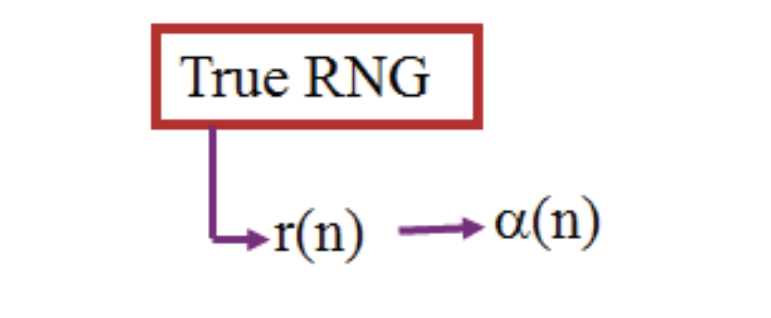Physics Lournal
Powered by 🌱Roam GardenClassical and Intuitionist Mathematics Shapes Our Understanding of Time
in Physics
Metadata
Author:: Nicolas Gisin
Abstract:
Physics is represented in terms of timeless classical mathematics. Presenting this in terms of Intuitionist Mathematics, built on processes of time evolution, offer a different perspective that maps more closely onto physical reality.
In 1922, Albert Einstein, met up with a philosopher, Henri Bergson, where they debated about time, wherein Einstein stated that: "There is no such thing as the time of the philosopher."
Around this time, mathematicians were in the middle of an equally important discussion, about how to properly describe a continuum.
The mathematician David Hilbert was promoting a formalized mathematics, that treats a number with an infinite amount of digits as a real physical object.
Opposite him, was Dutch mathematician LEJ Brouwer, supporting the view that the line should be seen as a never-ending process, that develops through time, the core of intuitionist mathematics.
These debates impacted Physics greatly: mathematics is the language of physics, and platonism makes speaking about time challenging. This led to the expulsion of the concept of time in physics: all events are the consequence of quantum fluctuations that took place during the big bang.
Subsequently, in todays physics, there is no creative time, and there is no "now".
The consequence of this was dramatic, when considering physics doesn't just concern technologies and abstract theories, but also the fundamental workings of nature.
Time is an integral part of the human experience, as pointed out by Yuval Dolev: "To think of an event is to think of something in time. [...] Tense and passage are not removable from how we think about events.
From this it may seem that physics should avoid narrating the human experience and stick to physical theory, but this may be dangerous to physics, and how well it is capable of responding to phrases such as "Time is an illusion".
Science without time is only ruin of intelligibility. - Rabelais
Outside of these debates, it is argued in Indeterminism in Physics, Classical Chaos and Bohmian Mechanics. Are Real Numbers Really Real?, that a finite amount of space cannot logically be said to contain more than a finite amount of information.
The mathematics used by scientists makes formulating concepts such as the passage of time difficult.
Bergson never accepted Einstein's statement, and Einstein himself was unsettled by the fact that physics lacked a proper description of the concept of now, though he himself was not sure of how to fold the concept in. Hilbert as well, was made uncomfortable by the infinities associated with his mathematics, stating that physics should never incorporate actual infinities.
In order to demonstrate the tension faced by physics, we can observe Classical Mechanics.
Classical mechanics is usually represented by clocks and cogs, but most classical dynamical systems differ from these because they are chaotic, due to the hypersensitivity of the evolution of the system to the initial conditions of the system, the future of classical systems depends on digits very far into the sequence of some value of a parameter describing the system.
A simple example of these systems can be modeled like so:
Assume the state-space reduces to the unit interval, and the system is stroboscopic.
The state is thus described by a number comprised of an infinity of digits that follow zero, and at each time step, the digits are shifted left, with the first digit being discarded:
After n time-steps, the nth digit is the most relevant digit for (accurately) representing the state of the system.
If one assumes all of the digits of some initial condition represent physical reality, of some system, such as the weather, has an entirely predetermined course of behavior.
This displays the absence of creative time: nothing really happens, but rather everything is a result of the initial conditions and the deterministic evolution of the system: this is a consequence of representing the infinite number of points on a line between 0 and 1 in classical platonist mathematics.
The question now is, is the above representation necessary?
Most physicists seem to reject such a representation, but also admit that they don't see another way of going about their work.
Max Born, one of the fathers of Quantum Mechanics, stated "...Statements like a quantity x has a completely definite value (expressed by a real number and represented by a point in the mathematical continuum) seem to me to have no physical meaning ".
Intuitionist mathematics can be of use in this situation.
In this school of mathematics, numbers are processes that develop over time: at each moment of time there is only a finite amount of information.
To demonstrate this, we can consider a quantum RNG, not as a human creation, but as a a result of the way nature works: intrinsically and fundamentally indeterministic.
This source of randomness feeds into the digits of real numbers as illustrated in the following figure:
